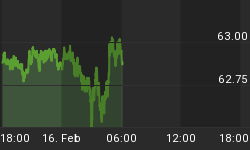Bad theories never die.
For example, please recall the Phillips Curve economic theory states that decreased unemployment correlates with higher rates of inflation.
Unemployment has plunged, but wage growth and inflation (the latter as measured by the Fed) are nowhere in sight.
Instead of tossing absurd theories onto the ash heap, economists and writers repackage the same bad ideas in similar ways.
Here's the newly revised theory courtesy of the Wall Street Journal: Anemic Wage Growth Restraining Economy.
"Years of solid job gains are failing to produce a breakout in wages, suppressing the spark needed for a sustained pickup in economic growth," says Wall Street Journal writer Eric Morath.
Let's put that theory to a simple test.
Wage Growth Minus CPI Growth

Wage growth in relation to price growth actually looks pretty good.
Wage growth is certainly far better now than the period between the mid-1980s and mid-1990s when the economy was generally booming.
Of course, this comparison is only valid if one believes the CPI, and most economists do.
Wage Growth and Recessions

High wage growth in the 1970s and early 1980s produced four recessions in twelve years.
Sustained wage growth was a predecessor to the last seven recessions.
Yet here we are. Economists and writers are begging for higher wages and big increases in minimum wages.
Inflation Does Not Produce Growth
Please repeat after me "Inflation does not produce growth, nor is it desirable."
If inflation produced growth, Venezuela would be a glowing beacon of light instead of the cesspool of shortages we see today.
















